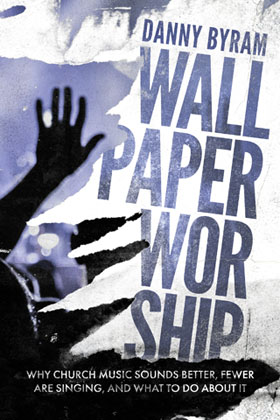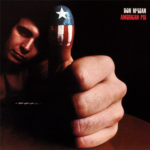
With the dawn of each new year, the English-speaking world has a fascinating tradition. We stay up ‘til midnight, count down our time zone’s version of midnight, lift a glass of bubbly, kiss our sweetie, toast the new year, and sing a circa 1788 Scottish song that none of us understands, except maybe Scottish pastor Alistair Begg.
“Should auld acquaintance be forgot, and never brought to mind?
Should auld acquaintance be forgot, and auld lang syne!
CHORUS: For auld lang syne, my dear, for auld lang syne; We’ll drink a cup o’ kindness yet, for auld lang syne.”
Translation: “auld lang syne” means “days gone by.” In American English, the final line would render “we’ll drink a cup of kindness, to remember days gone by.”
What is implied in this auld song is that we are encouraging one another to remember the good times. Well, sure! Who wants to dredge up the mistakes of the past? However, the Bible assures us there is valuable perspective to be gained when we choose to recall both: the good and the not-so-good past. I experienced this truth when visiting a church in Virginia Beach that started with a bunch of surfer dudes…

SURFER DUDES AND BABES
This “surfer church” was birthed from a tiny group of Christians befriending surfer dudes and babes on the beach. Through the simplicity of friendship, young, tanned, stoned beach people encountered Jesus and a church was born, now a very large church.
During my visit to one Sunday School class, I met a professional-looking married couple. Their story: Decades ago, after high school, they lived together in a tent on the beach. He surfed while she created and sold seashell jewelry to buy food, booze, and pot. One day, someone shared Christ with them and their lives radically changed.
After the Sunday school class ended, we filed into the main sanctuary for corporate worship. As we sang “Amazing Grace,” the familiar lyrics rolled out of my mouth without a thought: “Amazing grace, how sweet the sound, that saved a wretch like me.” Yet I noticed as this couple sang, tears streamed down their faces. After the service, I asked them why they wept during Amazing Grace. They answered, “We will never forget how wretched our lives were before we met Jesus.”
That is the power of remembering “days gone by” (“auld lang syne”).
The Apostle Paul reminds us of how wretched we were before we knew Christ: “slaves of sin, children of darkness, deceived, tossed about, confused, enemies of God” (Ephesians 5). Such a list tempts us to ask, “But isn’t that negative? Why bring up those ‘days gone by?’” I understand. Recalling my own wretched past can cause me to pray for amnesia. Jesus’ visit to Simon the Pharisee’s home (Luke 7) is a bold illustration of the dangers of such amnesia:
“When one of the Pharisees invited Jesus to have dinner with him, he went to the Pharisee’s house and reclined at the table. A woman in that town who lived a sinful life learned that Jesus was eating at the Pharisee’s house, so she came there with an alabaster jar of perfume. As she knelt behind him at his feet weeping, she began to wet his feet with her tears. Then she wiped them with her hair, kissed them and poured perfume on them. When the Pharisee saw this, he said to himself, “If this man were a prophet, he would know what kind of woman is touching him!”
Jesus, knowing his thoughts, said, “Simon I have a story for you: two people owed money to a lender. One owed 500 and the other 50. Neither of them could pay, so the lender forgave the debts of both. Now which of them will love him more?” Simon replied, “I suppose the one who had the bigger debt forgiven.” Jesus said, “Correct. Do you see this woman? I came into your house and you gave me no water for my feet, but she wet my feet with her tears and wiped them with her hair. You did not greet me with a kiss, but this woman has not stopped kissing my feet. You neglected the courtesy of oil on my head, but she has poured perfume on my feet. Her sins – which are many – have been forgiven – so she has shown me much love. But whoever has been forgiven little, loves little.”
Simon the Pharisee was respected, wore fine robes, probably expensive rings, had a nice home with servants. But somewhere in his prosperous religious work, he lost perspective. He failed to remember he was as needy and sin-filled as the woman at Jesus’ feet. Kinda like me, when I sang Amazing Grace without a thought of its meaning.
The Apostle John’s word to the church in AD 95 is sobering to us religion-brokers in the 21st century: “You (church goers – church staffers) say: ‘I am rich. I have everything I want. I don’t need a thing.’ And you don’t realize that you are wretched, miserable, poor, blind and naked.” (Revelation 3)

CAN WE LISTEN TO SIDE “B” NOW?
Fortunately, there are two sides to remembering. Paul also lists who we are now in Christ: “joint-heirs, redeemed, children of light” – the list goes generously on. Remembering our identity can motivate us to adjust our behavior today in order to have no regrets in our future yesterdays.
So, on New Year’s Eve, let’s “drink a cup of kindness” to remember “days gone by” so we never forget how rescued we are from ourselves, our damaged legacies and the superficiality of life without Christ. Whether we sing “Auld Lang Syne” or “Amazing Grace,” let’s weep with gratitude that He has saved wretches like us. Happy New Year!









This is so right on! But I must admit that I love the idea of praying for amnesia 😉
Yup! It’s a leap of faith and trust for us all! Thanks Cassie!
We are forgetful people. I can be ridiculously forgetful! I’m pretty sure that is why God has created so many ways for us to remember. It’s good to know how far He has brought me, even while I know I have so far yet to go. Thanks for this beautiful reminder, attached to a couple of songs I hope I shall never forget.
Mollie – Great comment! Thanks for interacting.
Yes. Remember it all. All of it played a part in bringing you to where you are right now. So embrace it all. Great article.
Thanks Terri. Embracing it ALL? Tough – but there is freedom there!